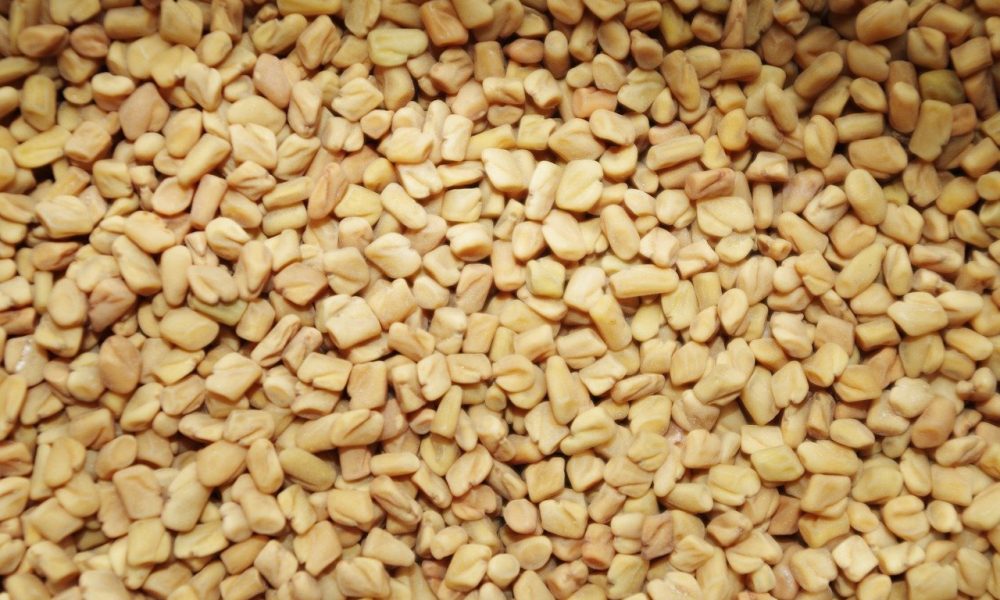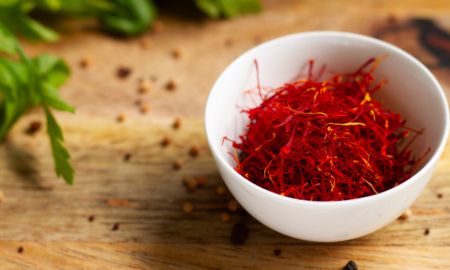
Fenugreek Health Benefits

Fenugreek is a clover-like herb native to the Mediterranean region, southern Europe, and western Asia. Its seeds, which smell and taste like maple syrup, have been used in cooking and as medicine. Fenugreek is used as an ingredient in spice blends and a flavoring agent in foods, beverages, and tobacco. Fenugreek extracts are also used in soaps and cosmetics.
In North Africa, Asia, and southern Europe, fenugreek was traditionally used for diabetes and increased milk supply in breastfeeding women. Today, fenugreek is promoted as a dietary supplement for diabetes, menstrual cramps, and other conditions and to stimulate milk production during breastfeeding. However, there have been a few smaller studies suggesting potential benefits.
Blood glucose control

Harish .P / Pexels | The seeds taste similar to maple syrup and are used in foods and medicine
Some studies suggest that fenugreek seeds may improve blood glucose (sugar) control in people with diabetes. It may also prevent people with prediabetes from progressing to diabetes. A review of studies reported that fenugreek seeds appeared to slow the absorption of carbohydrates, including sugars, in the intestines. By doing so, blood glucose control was improved.
Improve milk production and flow
Fenugreek may help stimulate breast milk production and ease the flow. Practitioners of traditional Asian medicine have long recommended fenugreek for this purpose. Some studies have reported that fenugreek, in the form of tablets or tea, improves milk production in lactating women by stimulating the mammary glands. There is, however, a lack of evidence to support this claim.
Relieves menstrual cramps

Pavel Danilyuk/ Pexels | Regular consumption of fenugreek seeds helps in lowering total cholesterol
Fenugreek has been shown to relieve dysmenorrhea or painful menstrual periods. According to some studies, women who took fenugreek supplements reported a reduced need for painkillers for menstrual cramps. Fenugreek seed powder can be taken 3 times a day in a dose of 1,800-2,700 mg for the first 3 days of a menstrual period, then followed by 900 mg of fenugreek seed powder 3 times a day for the next 2 days of the menstrual cycle.
Reduce the risk of heart and blood pressure conditions
Fenugreek may help regulate cholesterol levels and improve blood pressure, which can reduce the risk of developing heart conditions and improve heart health. This may be because fenugreek seeds contain roughly 48 percent dietary fiber. Dietary fiber is very hard to digest, and it forms a viscous gel in the intestines that makes it harder to digest sugars and fats.

Ketut Subiyanto/ Pexels | Apparently, consuming the right dosage of fenugreek seeds make you smell like maple syrup
Promotes healthy skin and hair
Some studies report that fenugreek may help promote skin and hair health, aiding in the treatment of skin conditions such as eczema as well as hair loss in women.
Improves digestion
Fenugreek aids in digestion and may help with heartburn, indigestion, and stomach upset. They are believed to relieve flatulence and have a soothing effect on the gut.
More inHealthy Trends
-
`
Are Popular Diet Trends Actually Good for Your Heart?
Diet trends grab headlines every year, promising everything from glowing skin to dramatic weight loss. But when it comes to the...
July 30, 2025 -
`
Why Are Men Taller Than Women? New Genetic Study Finds Clue
For centuries, the average height difference between men and women has been noticeable—men generally stand about five inches taller. While environment...
July 23, 2025 -
`
How Upcycled Beauty Ingredients Are Reshaping the Industry’s Future
The beauty industry is going through a big shift — and it’s not just about trends. As waste problems grow and...
July 17, 2025 -
`
A Look Inside Faith Kipyegon’s Groundbreaking Mile Run in Paris
Last week in Paris, Faith Kipyegon returned to a place she knows well: Stade Sébastien Charléty. But this time, she wasn’t...
July 9, 2025 -
`
Dairy Is Making a Major Comeback — And Health Shoppers Are Loving It
Just a few years ago, dairy sat quietly in the back seat while plant-based alternatives took the spotlight. Now, it’s stepping...
July 4, 2025 -
`
Does Aging Cause Dental Problems?
Aging doesn’t automatically mean losing teeth or developing gum disease. In fact, older adults today are holding onto more of their...
June 25, 2025 -
`
How Upcycled Ingredients Are Shaping the Future of Cosmetics
What used to end up in bins or compost heaps is now finding a new life inside skincare bottles and beauty...
June 18, 2025 -
`
Rock Legend Rod Stewart Trains to Break Sprint Record at 80
Age isn’t slowing Rod Stewart down. Known worldwide for his legendary voice, stadium-filling tours, and timeless hits like “Maggie May”, the...
June 11, 2025 -
`
The Truth Behind Detox Diets – Health Boost or Risky Trend?
It’s hard to scroll through your feed without seeing someone sipping green juice with promises of instant energy, glowing skin, and...
June 3, 2025














You must be logged in to post a comment Login